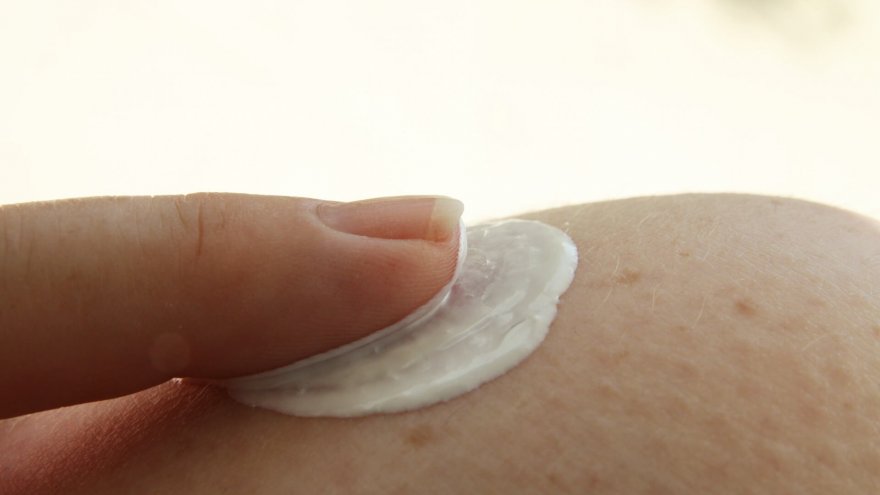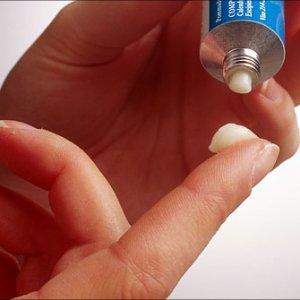How to Deal with Eczema as a Runner

Even though it is only November, winter is coming at us in full force! That means a lot of exciting things are ahead – the holidays, yummy treats and sweets, some rest and downtime in the offseason, time spent with family and friends, and getting out and exploring the Winter Wonderland on foot during a run! But colder weather also often means not only drier air outside, but a lot of time spent indoors to keep warm. The air inside our homes, offices, and public spaces tends to be dryer than outside, and this is especially true when the heat is on (and even truer when the source of warmth is gas heat). Dry air often leads to dry skin, and even though you may be focused on making sure you are staying hydrated and moisturizing regularly, you still might get brittle, cracked skin. For people who suffer from eczema, conditions may be even worse. No amount of over the counter lotion can help soothe your dry, itchy skin and oftentimes, eczema can really only be maintained and managed via prescription medicine and ointments. But if you are a runner suffering from eczema, you do not have to let your skin condition woes stop you from running and being active!

Find A Helpful Routine
I have had eczema virtually all of my life. It gets especially bad on the backs of my hands, around my knuckles, and the cold and dry winter air (indoors and outdoors) makes it worse – to the point where I will often wake myself up at night with bleeding, broken skin because I have scratched it so bad during my sleep! I have also been active in nearly all my life. From recreational youth team sports to high school cross country to a post-college fitness routine, running has been a constant for me for the past twenty years. I have been able to come up with a routine to help control eczema that works for me personally, but I have also found a few tricks and tips that others can benefit from as well!
Personally, I have to use a prescription ointment, prescribed by my dermatologist. I have been on both steroid creams and non-steroid creams. I have been prescribed a steroid cream when my eczema was at its worst and needed some really intense relief. You might also be prescribed a steroid cream. The downside is that you do not want to stay on a steroid (cream, pill, or otherwise, like prednisone) for too long because it can lead to deterioration of your bones, osteoporosis, thinning skin, and an increased risk of infections. The daily topical ointment I put on my skin (twice a day, every day – once when I get up and before bed) is not a steroid, and is not quite as strong but helps keep eczema at bay if it is routinely applied.

Caring For Eczema Overnight
As far as specific areas of eczema on the body, like the hands, you can really benefit if you apply an ointment or cream and then cover the air and “insulate” it through the night. For example, my hands really benefit when I put on topical ointment and then cover them in plastic gloves to sleep. For other areas of the body, I have had dermatologists suggest wrapping the area in saran wrap after ointment is applied. It might seem silly and definitely not pretty, but creams tend to get wiped off easily, and even evaporate. Covering them up ensures that they stay insulated and targeted on the problem area. Plus, you will wake up to soft, supple skin!

Eczema and Running Outside
The same concept can be applied to protect skin from dry outside air during a run. Moisturizing your skin with a thick lotion and then covering up with form-fitting clothes (like compression socks and sleeves, tights, and tightly fitted tops) will help keep the moisture in. This will also help save you from having to cut a run short because you just can’t take the itching any longer! The one downside is that, if you layer up, your body will obviously warm up quicker. Eczema tends to be exacerbated when skin gets overheated, and sweating further dehydrates the body of fluids, causing irritation. Combat this by making sure you drink PLENTY of water before your run – equivalent (or more!) to what you would drink to prepare yourself for a really hot workout. And even if you choose close fitted clothes, it is helpful to invest in quality clothes and materials that are specifically made for running, and help wick sweat. (Having sweat stick around on eczema-covered skin can cause further bacterial growth, itchiness, and irritation).
If it is summertime and temperatures outside are rising, even though it might not be ideal, your best option is to avoid extreme heat and opt to run either on the treadmill indoors, or before the sun comes out or after it has gone down (so long as you take precautionary measures to stay safe!). The heat really does a number on the skin with eczema, and it can be hard to cool it down and get it under control once it has been irritated so badly.

Keep It Clean!
How you clean up after a run is also critically important to keep your eczema under control. While you might be looking forward to that hot shower after a long run, but scorching hot water can make eczema flare up. Instead, start with lukewarm water and gradually increase the increase the temperature. But don’t skip the shower altogether! Leaving sweat to dry on the skin poses a threat to making your eczema spread and worsen.
Sources
- , Eczema and Exercise, National Eczema Association Article
Latest Articles
 Is It OK to Use Trail Running Shoes on the Road?While trail running shoes can be used on roads, especially in situations where a runner encounters mixed terrains or pref...
Is It OK to Use Trail Running Shoes on the Road?While trail running shoes can be used on roads, especially in situations where a runner encounters mixed terrains or pref... Is Running on a Treadmill Easier Than Running Outside?Runners have their own preferences, whether it is treadmill running, running outside on the road, or exploring trails. So...
Is Running on a Treadmill Easier Than Running Outside?Runners have their own preferences, whether it is treadmill running, running outside on the road, or exploring trails. So... How to Fix Sore Quads After Running?Rest, ice, gentle stretching, and over-the-counter pain relievers can help soothe sore quads after running. Also, ensure ...
How to Fix Sore Quads After Running?Rest, ice, gentle stretching, and over-the-counter pain relievers can help soothe sore quads after running. Also, ensure ... 10 Fruits With The Most Electrolytes to Replace Sports DrinksThese fruits are high in electrolytes such as potassium, magnesium, and calcium, essential for hydration, muscle function...
10 Fruits With The Most Electrolytes to Replace Sports DrinksThese fruits are high in electrolytes such as potassium, magnesium, and calcium, essential for hydration, muscle function...

